Photo


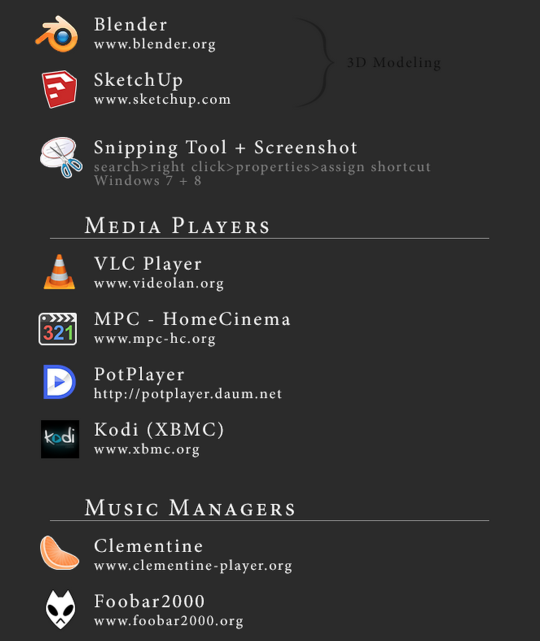
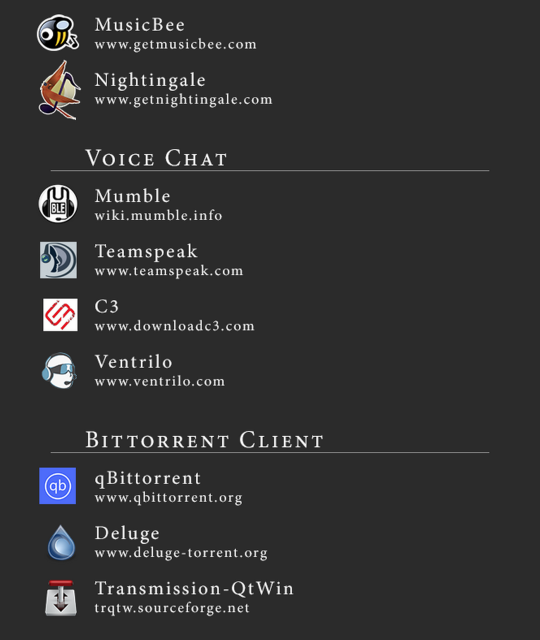
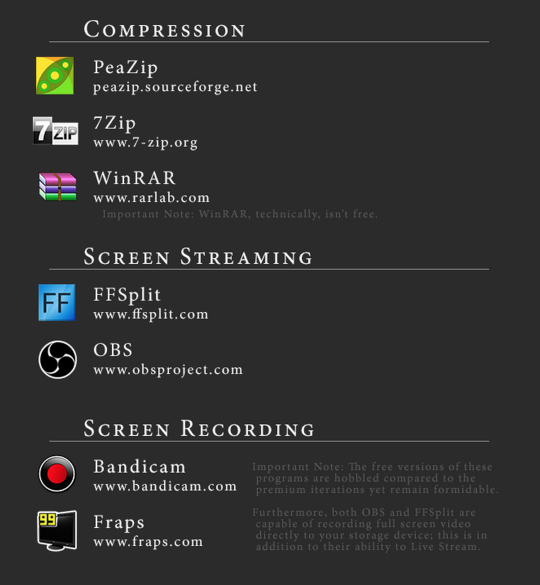
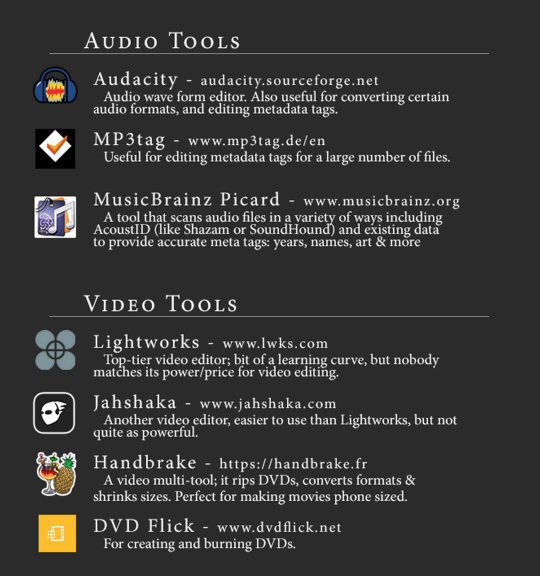
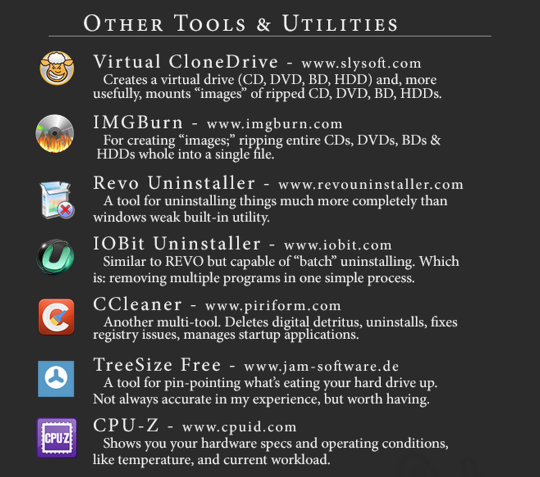
windows users, save money using these free apps!!
180K notes
·
View notes
Text

Around November a kid in my class got the chickenpox. This caused our class to be quarantined for a little more than 2 weeks, which sucked even more because it started on the day before our over-night field trip. And it was pretty chaotic since we’re seniors. I didn’t see the need to post this before since not many of us on here lives in China, but now that most people are going through the same thing I decided to post some of the tips I have on staying at home and staying productive. Enjoy~
1. Set an alarm and wake up on time
I cannot tell you how many times some of my classmates missed homeroom (for us it’s mandatory cause they take attendance and it affects whether you graduate or not). Setting an alarm makes you wake up on time and prevents you from oversleeping. I admit there were times where I forgot to set my alarm, hit stop and contined to sleep, or literally slept through it. It happens. But you can’t let it keep happening. This messes up your whole day and might causes you to procrastinate even more because ‘everything is ruined anyways’ (though this may have smt to do with my mental health..). So remember to set an alarm to get started on your day on time!
2. Have a schedule and (try your best to) stick to it
Routine helps. When you literally have nothing to do, having a scheduled saves you from boredom and also from wasting your time thinking about what you have to or should do today. It doesn’t have to be packed, just a simple list of chores and activities would do. This also refrains you from delaying schoolwork for ‘tomorrow’.
3. Exercise!!
Yes. Staying at home and not moving much will not make you feel good. Especially to those who live in dorms or apartments. So move around, exercise a bit. You could do yoga, stretch a bit, or just freestyle jump around to music. Anything to get you moving, do it. It’ll help you from feeling cramped, stop you from gaining weight, and also make you feel better. Why? Because exercise=endorphins=happy people (and happy people don’t kill their husbands) . Doing some chores would work too! So get up and start moving!
4. Open the windows
For all those who grew up with your mothers opening the windows, you get it. You need to ‘change the air’. Right now you’re not getting any fresh air. And you can’t just go out to take a walk, right? Open your windows for half an hour in the morning, and you’ll feel a difference.
5. Have something to look forward to each day
This one is kinda related to the second point. I strongly recommend you to have something new to look forward to everyday. It could be eating a slice of the cake you decided to bake, an episode of your favorite tv show, or trying to achieve your goal of touching the ceiling idk. Having something to look forward to motivates you to get up everyday and keeps you from having your days mashed up together till you don’t remember whether you ate the bananas on Tuesday or Wednesday. Personally, I look forward to what I’m having for breakfast, that way I have another incentive to get up early and enjoy it before the rest of my family wakes up. So create a list of things you like to do (or would like to try), go over it right before bed, and choose one for the next day.
6. Change your clothes
Staying in your pajamas is really really tempting. However, your brain associates your pajamas with sleeping. So staying in it the whole day will make it question whether you should sleep or do something productive. This could also mess up your sleeping schedule. So lay out an outfit before you go to bed, and change into it when you start working.
7. Shower, please. And do your chores.
I don’t mean to sound like your mother, but just because you didn’t go outside, it doesn’t mean that you don’t need to shower. If you are staying in your pajamas the whole day and for a few days now, go shower and get a change of clothes. And chores? Yes you still need to do them. It is your job to keep the area you live in clean and tidy. Plus, cleaning it would get rid of germs. Take care of yourself, please.
8. Journal
Last one, stay with me kids. This was a habit I developed during the chickenpox quarantine. Although it was solely for my mental health, it helped a lot to just sit there and write about my thoughts, feelings, and what happened during the day. For those of you who are alone and have no human interaction, this might help you when you feel like ranting. Just sit down at the end of the day, and pour your heart out. If you don’t feel safe having a physical book lying around containing all these intimate and vulnerable parts of you, download a journaling app. Some have locks, and worse case you can just delete it to never see it again.
9. Human interaction
Wait no, this one’s the last one sorry! Contact your parents or friends once in a while. For those of you who often see them physically yet don’t have a habit of holding conversations with them online, call them. It helps with the loneliness that creeps In sometimes. Catch up with them, make sure they’re ok.
10. Lotion
YOUR HANDS ARE GOING TO GET DRY FROM ALL THAT WASHING SO PLEASE REMEMBER TO APPLY LOTION OR ANYTHING THAT WOULD HELP
So far these are all that I can remember, I’ll reblog this if I have more. Thanks for reading! I hope it helped~
826 notes
·
View notes
Text
9 points about language learning and how I’m learning 20+ of them
I’ve had a few requests to write about how I learn my languages. To different degrees, there’s currently 20+ of them and I don’t see myself stopping yet. The thing is, learning languages comes really easily to me and I want to share, maybe it will be helpful to somebody else.
First, I’d like to have a look at first versus second language acquisition. I’m a linguist and I’m super interested in Child Language Acquisition. That however, has a critical age of 14 (or so I was always told) and is then no longer possible and any language learned after that age will never progress as quickly or can’t be learned perfectly.
Well. I disagree.
The simple difference is - first language acquisition is how you acquired your first language(s) as a child. By imitating, finding patterns, etc. Second language acquisition is what you know from language courses. Vocabulary, irregular verb tables, endless exercises.
Now that we got some of the terminology off the table, let me see how I actually learn languages:
1) I utilise elements of the first language acquisition rather than second language
I’ve only studied vocab a couple times at school, when I put them into Quizlet or when someone forced me to. I’ll get back to it in another point. I don’t learn patterns. I know there is one and I let the input do its magic of slithering into my head. Again, more on that in point 2. You always get told you’ll learn a language better when you’re thrown into the country where they speak it. And it’s so true because of the processes behind it. Because input and immersion are the keys and that’s how children learn, too.
2) I don’t cram languages. I process them.
Around langblrs, I keep seeing all the ‘crying over verb tables’, ‘trying to learn a 1000 words this week’ and the like. That may work for you, sure. But I’ve never done that. I did learn a few irregular verb patterns for German in class, but while I could recite them, it wasn’t helpful. In Irish, I sometimes still wonder which verb ‘An ndeachaigh tú?’ comes from. The thing is, you’re able to process language. You know this word is probably irregular. If you come across it and don’t know what the irregular form is, look it up. After you’ve looked it up for the tenth time, you’ll probably remember by then. Same with anything else. Don’t try to learn things by heart when it comes to languages.
3) Vocab??
Same rule applies here. I’ve only learned vocab at school and then a handful of times when I wasn’t too lazy to put it into Quizlet (which is fun and I learn something, but it’s more of a useful pastime than anything). When you read, just skip the words you don’t know and only really look them up if you can’t tell by context. NEVER translate vocabulary. I mean, sure, look up what it means, but don’t connect it to the word itself. Connect it to the meaning. Pictures work better. As for abstract words, imagine the concept. Just try not to bridge the meaning of the word with your native language. Languages in your brain are meant to be two separate units. Unless you’re working on a translation piece, they shouldn’t be ‘touching’.
4) I use example sentences for everything.
Grammar guides are useful but rather than learning all the rules at once, take it one step at a time and remember some example sentences and let them guide you through the grammar rule you need.
5) Input is everything. Output is hard, but you’re basically imitating input and utilizing patterns you know (or think you know).
Let me give you an example. Let’s say I’m writing a piece on my daily routine, for example. I make use of the example sentences and try to tailor them to my own needs. Trial and error, if I make a mistake, it’s okay, if somebody points it out, I probably won’t make it next time. As I progress, I will gradually remove the mistake. Same goes to new words and new verbs. Use the input you’ve got. Does this verb sound like some other verb you’ve heard before? It’s might have a similar conjugation pattern. You can check it, you don’t have to.
6) Learning languages should NOT be stressful!
I never stressed over learning a language. Sure, I’m frustrated that after a year and a half of learning Irish, I’m not 100% fluent, but I’ve never stressed over it. I’ve never cried over it. I’ve never cried over a language (I only cried after a French oral exam which I thought I failed). Don’t be hard on yourself and try learning through a method that’s not stressful. Watch videos for children. Read books for children. Write down cool things in your target language(s).
7) You’ve learned a language before. Why wouldn’t you be able to learn it now in a very similar way?
This is basically me saying that I have little belief in the efficiency of pure second language acquisition. Maybe a few individuals can reach fluency by cramming a language, the thing is, I think that if we concentrate on processing instead of remembering, just like we did when we were children, we can reach better results in a shorter amount of time. Also, if this is your third or fourth language, compare to languages you already know.
8) I don’t start with basics. I start ‘somewhere’.
Delve into the language the second you’ve started. Are you overwhelmed? That’s fine! You’ll find your way around it. Start with word meanings, finding out what kind of sentences those are and then build your way around it. Don’t start saying ‘hello’ and ‘I’m from’. Those are cool, but usually, they are used in a different way when you actually go out and speak. You’ll get them along the way.
9) Don’t rely on instructions (only). Rely on yourself.
This is just my two cents. I’ve pieced this together trying to remember how I’ve learned what I’ve learned and comparing it to how others around me learned. Please, let me know if it makes any sense. I may edit this and post this again later if I have any more ideas. Feel free to contribute or to bombard me with questions. I’m happy to answer.
10K notes
·
View notes
Photo

Okay, so you’ve been called smart all your life. As a kid, you were one of the smartest in your class. Maybe you could read at a much higher level than your peers, or you could fly through multiplication drills like they were nothing. Then, you get to high school and suddenly you’re surrounded by lots of people who were ‘gifted kids’. None of what made you ‘special’ seems all that important now. Your work is actually challenging, and it’s actually requiring effort.
If you’re experiencing this, just know that so many students have gone through the same thing. Maybe it happens in high school, maybe college. But a lot of us who were considered gifted as kids suddenly run into this and it challenges our entire identity. It can be paralyzing, but it’s 100% possible to overcome it and succeed! I’ve compiled a few tips for ex-gifted kids dealing with impostor syndrome and self-doubt. I’m not a therapist, psychologist, or any sort of education expert. I’m just speaking to my own experiences, and I welcome any input from others who have insight into this as well!
1. Understand that working hard does not mean you aren’t intelligent. If something doesn’t come naturally to you, that’s not a reason to give up. Believing that people can do things “just because they were born with a talent for it” is only going to hurt you. It’s not true! People may have natural aptitudes for things, but hard work is involved even for the smartest or most talented people. You are capable of learning anything, and you don’t have to be “good at it” right away to do so.
2. Comparison will kill you. You are your only competition. Focusing on how you rank with other students, and comparing yourself to your classmates is going to exhaust you. By focusing on others, you can’t put your full energy into focusing on your work and yourself. You belong. Even if you struggle with your work, you belong. Focus on your own self-improvement and doing your best.
3. Don’t focus on the goal, focus on your current actions. If you’re always thinking about the future, and about whether you’ll get into that school or that program or win that award or get that scholarship, you’re not using that time to get work done. Don’t worry about college applications, just do your homework. Focus on what you are doing now to reach your goals so you can apply to schools with confidence later.
4. Your grades may not reflect intelligence, but they do reflect work ethic. Don’t let others convince you that grades mean nothing. They sure as hell mean a lot to colleges, and thinking that you should “reject the current education system” is not going to harm anyone but yourself. If you don’t feel like you’re learning anything in your high school classes, that’s all the more reason to want to get into a university that will challenge you. If you put effort into your work, it will not let you down. Your hard work will be reflected on your transcript. Don’t lose focus.
5. Talk to someone. Let people know if you’re struggling. It can be hard to feel like you aren’t allowed to identify as “smart” or to feel pressure to constantly compete and improve. I went to a highly competitive high school that pushed kids to cope in dangerous ways. This is not healthy and not okay. If you’re feeling overwhelmed you need to find healthy coping mechanisms. Speak with someone you trust and don’t let yourself spiral. Don’t try to self medicate. Your well being is always more important than your grades. Period.
6. Enjoy yourself. School may seem like hell, and you may feel like it will never end and you’ll always be stressed and worried. But high school is only four years, and you can do things during that time that you probably won’t ever again. Take advantage of things that seem fun, even if people think they’re nerdy or weird. Try and remind yourself that you’re lucky to have your education and you have the power to do great things with it. Don’t lose sight of your own ability and your bright future!
15K notes
·
View notes
Text
For every Reblog 1$ will be donated to my autistic brothers fundraiser :)
gayasthefourthofjuly7:

99% of people won’t reblog this because they think it’ll make their blog look as shitty as their heart.
495K notes
·
View notes
Text
Apartment hacks masterpost
Kitchen
How to clean up kitchen (particularly the sink, burnt pots and small aplliances)
How to take care of kitchen stuff so that it lives longer
10 commandments of a clutter-free kitchen
Organizing kitchen mini masterpost
5 things to do in the kitchen before you go to bed
What is soapy bowl and why it’s awesome
How to organize your fridge (also here, here and here)
Thins you should know about your fridge
Adding more storage space in a tiny kitchen
Cleaning
Lots of cleaning tutorials and tips. And some more
How to clean up pantry
How to make your house look cleaner than it really is
How to wash pillows
Cleaning the bathroom
How to clean the nastiest places (and get rid of bad smells, etc.)
Floor-to-celling guide to spring cleaning
Recaulking your bathtub
Cleaning grout
How to dispose of toxic waste
Cleaning the medicine cabinet
How to make chores more fun
You mustn’t skip these chores, but you can delay these if you’re busy
Easily forgotten things that you should clean/replace
Why you need a catch-up day
Small cleaning tasks to do in under 15 minutes (also here)
Looking for a flat/moving
First apartment checklist
Where too look during an apartment hunt (and some more tips)
Negotiate these things with your landlord
What to do first in a new place
What do clean before moving out
How not to get crazy during moving flats
How to downgrade to a smaller place
Organisation, storage
10 habits for better home organisation
How to store off-season items
10 storage ideas for small spaces (more here)
Storage secret weapons
How to organise your closet
Things to do before twice-yearly closet switchout
How to store and maintain your sweaters
Decluttering
Why it feels great
How to get rid of clutter
How to declutter (not only a flat)
What needs to be thrown away from your flat
How to let go of the things you no longer need
Things you own too many of; you can throw away these too
Decuttering the bathroom
Decluterring masterpost
Decorating
Projects for every room in your home/flat
Add style to your home
DIY decorating ideas
How to use negative space
4 common decorating mistakes and how to avoid them
Questions to ask yourself before buying something new
How to choose furniture that’ll be easier to clean
Season-specific tips
Things to do before the cold season
Household hacks for winter
Preparing for Christmas
Green thumb 101
How to take care of succulents
Never kill a plant again
Living alone / Sharing a flat
How not to be lonely when living alone
12 things you can only do when home alone
What you learn by living alone
Things you learn while sharing a flat
What to pack when leaving for a dorm
How to seamlessly share a kitchen (or a flat in general)
Safety issues to discuss with flatmates
Benefits of living with strangers
And also how to turn a house into a home
110K notes
·
View notes
Text
OH MY GOD whyyyy did no one tell me you’re supposed to send thank-yous after interviews?? Why would I do that???
“Thank you for this incredibly stressful 30 minutes that I have had to re-structure my entire day around and which will give me anxiety poos for the next 24 hours.”
I HATE ETIQUETTE IT’S THE MOST IMPOSSIBLE THING FOR ME TO LEARN WITHOUT SOMEONE DIRECTLY TELLING ME THIS SHIT
444K notes
·
View notes
Text
please make sure that wherever you’re at in life, you don’t treat it like a transitory period. don’t waste your college years wishing to already be graduated & have a job. don’t waste your single years wishing for someone to be in love with. if/when those things come, they will come in due time and they will be good. but there is nothing like looking back and feeling empty because you wasted literal years ignoring what you had because you were hoping for something better. while it’s important to better yourself and reach for your goals, don’t neglect the present because that’s where you are now and it’s your now that determines your future.
295K notes
·
View notes
Link
675 notes
·
View notes
Text
kyuhyun: do you take constructive criticism?
eunhyuk: not without crying
259 notes
·
View notes
Text

Annotation
Make sure to read the poem at least 3 times over. Skim once, and read twice. Skim and read once each if you don’t think you have enough time. Don’t let the length of it to intimidate you. Annotate anything that will help you to answer the question. Answering the question, aside from literary devices on their own, is the most important. Be selective about the quotes and literary devices you find, and which ones you can write about more.
How I annotate my textbook by @studentstoolbox
How to annotate by @tbhstudying
How to annotate by @wandering-writing
How to annotate a novel efficiently by @mildstudies
How to read from a textbook by @studyaestheticx
How to read journal articles critically by @studytimeblues
Annotate and taking notes from literature by @noteology
Annotating effectively by @hideandstudy
How to use sticky notes by @etudiance
Using post-its for notes and annotations by @calcvlus
Annotations and note-taking by @novanovelist
Annotating books/textbooks etc by @freckledstudy
Annotating fiction and non-fiction by @collegerefs
Annotating texts by @delphicoracle
Novel annotation tips and tricks by @themanuscriptmusings
Annotating literature by @studiesinaonesie
How to: approach poetry analysis in an exam by @leostudies
Colour coding
How to create an effective colour coding system by @emmastudies
Colour code notes tips and tricks by @kimtented
A guide to colour code by @oreo-studies
Colour code by @3amstudying
Annotation key by @academicmind
How I highlight by @medtrash
Highlight ideas by @study2hard
Literary devices
Literary devices (with printable) by @studie-s
A list of literary techniques
Reading more
How to read more by @austinkleon
100 books everyone should read before they die
100 books to read before you die ya edition by @nicoperseid
French women write classics, too by @antigonick
Free books: 100 legal sites to download literature by @culturenlifestyle
Download free books by @wewantbalance
Haruki Murakami by @readthemoon
List of free foreign language books by @polyglot-oneday
The academic zine: issue 1 by @theacademiczine
Poetry recs by @rsiken
A guide to: assigned readings by @stellestudies
Recs list of ten short stories by @sophia-sol
Jane Austen masterpost by @septemberwildflowers
Essays
Back to school: how to get an a*/8 or 9 in an english lit essay by @thelawgraduate
Mulan’s guide to battling essays from planning to writing by @teacomets
Everything you need to know about the MLA format by @studying-and-organzing
How to write comparative essays by @rewritign
Others
Character flashcards for literature texts by @studyblroyalty
Theatre advice for Shakespeare plays by @disaster-lesbianbeau
English literature tips by @catestudies
How to ace literature by @riseandstudy
7 key literary time periods and what’s typical by @reviseordie
Analyzing literature a guide for students by @nimblesnotebook
How to literature by @llterature
Quotes
Motivational classic quotes by @classicalstudies
Enchanting Bookworm Inspired Digital Illustrations by Simini Blocker
Quotes that make you shudder by @alonesomes
Resources
Crash course
Sparknotes
Other masterposts by me
Printables
Self care
College
Ace your exams
Apps for students
Note taking
Math
Bullet journal
3K notes
·
View notes
Text
BitesizeKorean Masterpost
Mobile friendly post for BitesizeKorean. Updated on: 160713
GRAMMAR/QUESTIONS
Vocabulary Builders
Countries
Body Parts
Twitter
Terms of Endearment
Words of Encouragement
Colours in Korean
Common Konglish Words
Numbers in Korean
Grammar
외국인 vs. 외국 사람
책방 vs. 서점
일하다 vs. 직장
숙제 vs. 과제
학교 vs. 학원
응답하다 vs. 대답하다
심지어 vs. 게다가
가격, 값 and 비용
수다 and 수다를 떨다
감사합니다, 고마워, and 고맙다.
한국어 vs. 한국말
아마 vs. 어쩌면
아니요 vs. 아니야
지금 vs. 이제
위성 vs. 달
이거 vs. 이게
항상 vs. 늘
자백 vs. 고백
평소 vs. 보통
오전 vs. 아침
어쩌면, 아무래도, and 아마
1등 vs. 1위
아니에요 vs. 천만에요
원하다 vs. 싶다
부인 vs. 아내
미안하다 vs 죄송하다
뭐 vs 무슨
친절 vs 친절하다 vs 친절한
창피 vs 민망
(-았/었어요) vs (-고 있어요)
있면 vs 있다면
당신은 vs 너는
명 vs 분
Interrogatives
Demonstratives
Locative Adverbs
Bright and Dark Vowels
Particles 은/는 and 이/가
을/를 Object Marking Particles
이다 (To be)
아니다 (To not be)
~(으)ㄹ수록 [~(으)면 ~(으)ㄹ수록] (The more… the more…)
~네요
~ㄹ/을 계획 (To have plans to…)
잘/못 하다 (to be good/bad at something)
아서/어서
Particles: 에게/함테/께 and 에게서/한테서
와/과 particles
Particles 에서 and 에
~(으)ㄴ/는 편이다 (Stating characteristics)
Expressing desire to possess a noun ~고 싶어요
(verb)+자
~(으)ㄴ/는데
~겠어요
A/V~고
Pronouns in Korean: I, me, my, mine
보이다
~던
지 and the ~는 것 principle
~아/어/여야 되다 or ~아/어/여야 하다 (to have to)
Misc. Questions
What does 눈치 mean?
Basic Korean curriculum plan! Pt.2
Anywhere to read beginner and intermediate Korean?
Is ㄱ ‘g’ or a ‘k’?
How do you pronounce 의?
When is 의 pronounced differently?
What is the difference between ㄱ and ㅋ?
How to say ‘You are’ in Korean?
How to say “I am” in Korean?
How to say “What is…” in Korean?
How to say “Who is…” in Korean?
What does 미드 mean?
What does 특집 mean?
What are some differences between the Seoul and Busan dialect?
How to learn the Busan accent?
What is the difference between 입니다 and 이에요/예요?
When do pronounce the letters ㅅㅈ ㅊ and like ’t’ and ㅂ like ’m’? And why?
When are ㅅ/ㅆ pronounced “SH”?
How to say, “Is it interesting?”
뭐야 이거?
Which particles are dropped in speech?
Do people in Daegu and Busan speak the same dialect?
What’s the difference between ~어/아서 and ~고?
How to change verbs into nouns?
What’s the difference between 안녕히가세요 and 안녕히계세요?
What’s “anyway” in Korean?
Why do Koreans use 우리 instead of 나의?
What does “멋졍 ” mean?
Pronunciation rules for ㅎ
Speech formalities
Nouns in Korean
How to ask questions in Korean
How to say a.k.a in Korean?
How to say ASAP in Korean?
Grammatical spacing in Korean
Accents around Korea
Difference between 함께 and 함께라면?
How would you use 이야기하다 in a sentence?
What does ‘도망치지 마 뒤돌아서서 두려움에 맞서봐’ mean?
ㅍ,ㅂ, and ㅃ
Difference between 애 and 에?
How to say “please” in Korean
Negatives in Korean
Difference between ㅊ and ㅈ?
What’s the difference between 우리, 나의, and 내(ㅔ)?
Why do Koreans sometimes put 나 at the end of a sentence?
Difference between 입니다 and 습니다?
How to introduce yourself in Korean?
How to pronounce Hangul characters?
What does 이뤄진다 mean?
Pronunciation of ㅈ for men and women
What’s “real” in Korean?
What’s “star” in Korean?
Korean suffixes
What does 휘황찬란한 mean?
Are “천만에요” and “안녕하세요” formal polite?
Greetings on the phone?
Which number system do I use for ‘years’?
Korean Sentence Structure
Why is there a -야 at the end of informal sentences?
What do stressed syllables mean in Korean?
네 as 네 or as 니?
What does 인정 mean?
How do you use compliments like “cutie” in Korean?
Cutie: 귀염둥이
How to ask to switch to 반말?
고민: One’s worries
What does 왜그래 mean?
ㄹ sounding as L and R?
Resources for learning about culture?
Thoughts on TTMIK?
Are there other times to use 여보세요?
What do you say when you answer the phone?
How to say Happy Birthday in Korean?
Hangul characters and syllables explanation
Does 때문에 have a negative nuance?
Understanding Konglish words
How to say “Excuse me” to pass through
Do commas exist in Korean?
How to ask questions in Korean part 2
Is there a specific stroke order to Hangul?
How to say “embarrassing” in Korean
How to identify the subject and object in a sentence?
How to pronounce hanja?
How to say the year in Korean?
Common spelling mistakes in Korean
Understanding dictionary form
Hangul character names and alphabetical order
How to pronounce compound consonants in Korean
What does 새살 mean?
VOCABULARY
Follow the Instagram counterpart for all vocabulary study cards! And Memrise is available!
WEEKLY VOCAB RECAP:
Week One
Week Two
Week Three
Week Four
Week Five
Week Six
Week Seven
Week Eight
Week Nine
Week Ten
TEN WEEK VOCABULARY
Week Eleven
Week Twelve
Week Thirteen
Week Fourteen
Week Fifteen
Week Sixteen
Week Seventeen
Week Eighteen
Week Nineteen
Week Twenty
TWENTY WEEK VOCABULARY
Week Twenty-One
Week Twenty-Two
Week Twenty-Three
Week Twenty-Four
Week Twenty-Five
Week Twenty-Six
Week Twenty-Seven
Week Twenty-Eight
Week Twenty-Nine
Week Thirty
PROVERBS
Follow the Instagram counterpart!
ㄱ:
가재는 게 편이라
개미 구멍으로 둑도 무너진다
가는 말이 고와야 오는 말이 곱다
거지도 부지런하면 더운 밥 얻어 먹는다
가려운 곳을 긁어 주다
거미 새끼같이 흩어진다
가랑비에 옷 젖는 줄 모른다
개천에서 용 난다
걱정도 팔자다
귀신도 모르다
거짓말도 방편
공자 앞에서 문자 쓴다
곧은 나무 먼저 찍힌다
고양이에게 생선을 맡기다
ㅅ:
시작이 반이다
선무당이 사람 잡는다
ㅁ:
말보다 증거
ㅊ:
천 리 길도 한 걸음부터
ㅈ:
작은 고추가 맵다
잠을 자야 꿈을 꾸지
ㅇ:
원숭이도 나무에서 떨어진다
ㄷ:
돌다리도 두드려 보고 건너라
ㅂ:
빛 좋은 개살구
SLANG
득템
얼짱
말을 씹다 or 문자를 씹다
안습
Lyrics
”내 맘에 깊이 가득 차버린 공허한 세상 나를 구해줘” Reset - Tiger JK
“이 끝이 없는 미로 속에서 어서 날 꺼내줘” Love is not over (full version) - BTS
“난 숨쉬고 싶어 이 밤이 싫어 이젠 깨고 싶어 꿈속이 싫어” Save me - BTS
“난 꿈이 있어요 그 꿈을 믿어요 나를 지켜봐요” A Goose’s Dream - InSoo
“다시 run run run 난 멈출 수가 없어 또 run run run 난 어쩔 수가 없어” Run - BTS
Tip/Tricks/Advice
Do you have any tips for pronouncing Korean?
Check out this post!
Do you have any tips for the intonation/rhythm of Korean?
Check out this post!
Do you have any tips on learning bright and dark vowels?
Check out this post!
Do you have any tips for reading Hangul like a native?
Check out this post!
Do you know of any good Korean dictionaries?
Check out this post!
Do you have any tips for learning Hangul?
Check out this post!
Do you have any tips on staying organised while studying?
Check out this post!
Do you have any tips for self study?
I have a self study guide here!
What is your study plan like?
I have a post here explaining!
How to keep yourself motivated?
Check out this post!
FAQ
If you are new to the blog and are looking for any information regarding how to learn Korean, travel, or resource material, please refer to my Korean Resource Masterpost and my Self Study Guide.
If your question is grammar related, please check to see if it has been answered. If not, please feel free to ask!
Inbox Rules:
1) I don’t do translations - Translations are not the focus of this blog, and since I receive so many of them, it is impossible to keep on top of. So for this reason, any translation requests in my inbox will be deleted from now on - no exceptions. I apologise for the inconvenience.
2) I will delete repeated questions - By this, I just mean that sometimes I have more than one of the same question in my inbox at the same time. So I will keep the question that was asked first, and delete any repeats within my inbox. So if I don’t specifically answer your question, but I release an answer with a similar question, you’ll know why I didn’t respond. However, if you still have something left unanswered, feel free to specify and send me another ask and I’ll do my best to respond.
3) I will link - If I receive a question that has been answered before, I will just do what I normally do and link to other posts that help to answer the question! So don’t worry if you ask something that has been asked before - I am more than happy to link you to the answer, since I know phone users especially can’t navigate my posts easily. ^^
4) Ask box only - If you have a Korean related question, please enquire through my ask box and not my messages. Thank you.
Those are really the only four rules. Thank you for understanding!
Do you use any other social media?
I have an Instagram for Korean Idioms, and another Instagram for all my vocabulary study cards! I also have a Twitter for updates! And a Memrise for vocabulary!
How long have you been studying Korean?
Honestly, not long! I’ve only been dabbling in the language since late October 2015.
Do you self study?
Yes. I try to dedicate at least four hours a week into learning grammar and vocabulary.
What is your native language?
My mother tongue is English!
What is your name?
Most people call me Elle (pronounced Ellie)! My real name is Emily.
Will you add audio to your study cards?
I did consider making audio for the pronunciation, however I came to the conclusion that the quantity of vocabulary I’m supplying each week is already being juggled on top of university work. So making videos or audio would only increase the work and provide difficult to keep up. Although, I’m not completely dismissing the idea, so I’ll see what happens!
Will you add romanisation to you study cards?
I personally don’t think that romanisation is necessary, and quite often, it seems to be that learners can find it restrictive. This is mainly due to the fact that it can actually inhibit proper pronunciation and hinder reading fluency. Romanisation also has the habit of contradicting advanced pronunciation rules, and for these reasons, I don’t like to include it. I also had an open discussion with most of you about adding it - and it seems that a majority would dislike me to include romanisation. I apologise for the inconvenience.
Am I allowed to save the study card you’ve made?
Of course. That’s why I make them! ;) However, I do not allow the re-uploading of any of my flashcards without first asking permission. I put time and effort into these study cards, and it’s upsetting to see my work posted without proper credit.
Why did you start learning Korean?
I love language, and have dabbled in many! I decided to learn a language completely different to anything I’ve learnt before, so I picked Korean randomly. I fell in love with it, and from there I’ve found a secret passion for Korean drama!
What other languages have you studied/know?
I have studied German, French, Russian, Japanese, and have recently just started to learn Danish. Although, Korean has been the most fun!
12K notes
·
View notes
Text
GETTING A JOB CHEAT SHEET!!
perfect resume for someone with no experience
A+ advice on writing cv’s
a guide to writing your resume
how to get a job fast as hell
resume writing tips
jobs and careers masterpost
how to answer interview questions
career and employment masterpost
strong words to use on a resume
34 crucial tips for your next job interview
how to write a cv
resume cheat sheet
how to write a cover letter
job hunting resources
Find a job in your field
7 questions you should ask at the end of every interview
how to get a job before you graduate
how to be good at interviews
other cheat sheets
210K notes
·
View notes
Text
every semester, without fail, there’s some freshman who’s like “oh I never check my email lol” and i get worried for them, bc they’re going to miss some important email about a pop quiz or a test, or something and then fail. so if you’re a freshman reading this, CHECK YOUR EMAIL im not joking, professors will send you stuff via email that they’ll never mention in class. I’m in my email every hour on the hour before and after class. check that shit. put that app on ur phone, turn on notifs, go in and refresh every hour, check your spam, check your email
this has been a message from your concerned dad. check ur email, do well in school, i love you
150K notes
·
View notes
Text
This is a big, giant list of Youtube tutorials that will teach you all the basic life skills you need to know in order to be a functional adult. There are a lot of important skills that aren’t included in this list, but this should be enough of a basic guide to get you started and prevent you from making a total mess of yourself. Happy adulting!
Household Skills:
How to unclog a toilet without a plunger
How to fix a blown fuse
How to fix a leaky faucet
How to clean soap scum from your tub and shower
How to escape from a house fire
How to make a budget and stick to it
How to sharpen a knife
How to clean a self-cleaning oven
How to clean red wine stains from carpet
How to clean blood stains from fabric
How to clean grease stains from fabric
How to do a load of laundry
How to iron your clothes
How to test your smoke detectors
Cooking Skills:
How to tell if produce is ripe
How to know if food is expired
How to properly sanitize a kitchen
How to cook an egg
How to make rice
How to make pasta
How to put out a kitchen grease fire safely
How to use a gas stove
How to use a convection oven
How to cook meat safely
How to use a stand mixer
How to use kitchen knives properly
How to make mashed potatoes
How to make grilled cheese sandwiches
Health Skills:
How to stop bleeding
How to treat a burn
How to do CPR (on an adult)
How to do CPR (on a child)
How to do CPR (on a baby)
How to help someone who is choking
How to save yourself if you are choking alone
How to read a nutrition label
How to treat frostbite
How to recognize when someone is having a stroke
How to maintain a healthy sleep schedule
Mental Health Skills:
How to calm down during a panic attack
How to help someone who is suicidal
How to meditate
How to stop self-harming
How to recognize problem drinking
How to choose a therapist
How to deal with disappointment
How to cope with grief
How to raise your self-esteem
Relationship and Social Skills:
How to apologize
How to cope with a breakup
How to accept criticism
How to deal with bullying
How to argue in a healthy way
How to ask someone out
How to break up with someone
How to recognize an abusive relationship
How to rekindle a damaged friendship
How to speak in public
Job Hunting Skills:
How to tie a tie
How to write a resume
How to write a cover letter
How to dress for a job interview (for women/femmes)
How to dress for a job interview (for men/masculines)
How to properly shake hands
How to nail a job interview
Other Skills:
How to sew on a button
How to hammer a nail
How to change your oil
How to put gas in your car
How to jump-start a car
How to pick a good password
How to back up your files
How to write a cheque
197K notes
·
View notes
Text
My sociology professor had a really good metaphor for privilege today. She didn’t talk about race or gender or orientation or class, she talked about being left-handed.
A left-handed person walks into most classrooms and immediately is made aware of their left-handedness - they have to sit in a left-handed seat, which restricts their choices of where to sit. If there are not enough left-handed seats, they will have to sit in a right-handed seat and be continuously aware of their left-handedness. (There are other examples like left-handed scissors or baseball mitts as well.)
Meanwhile, right-handed people have much more choice about where to sit, and almost never have to think about their right-handedness.
Does this mean right-handed people are bad? No.
Does it mean that we should replace all right-handed desks with left-handed desks? No.
But could we maybe use different desk styles that can accommodate everyone and makes it so nobody has limited options or constant awareness that they are different? Yes.
Now think of this as a metaphor. For social class. For race. For ethnicity. For gender. For orientation. For anything else that sets us apart.
120K notes
·
View notes

